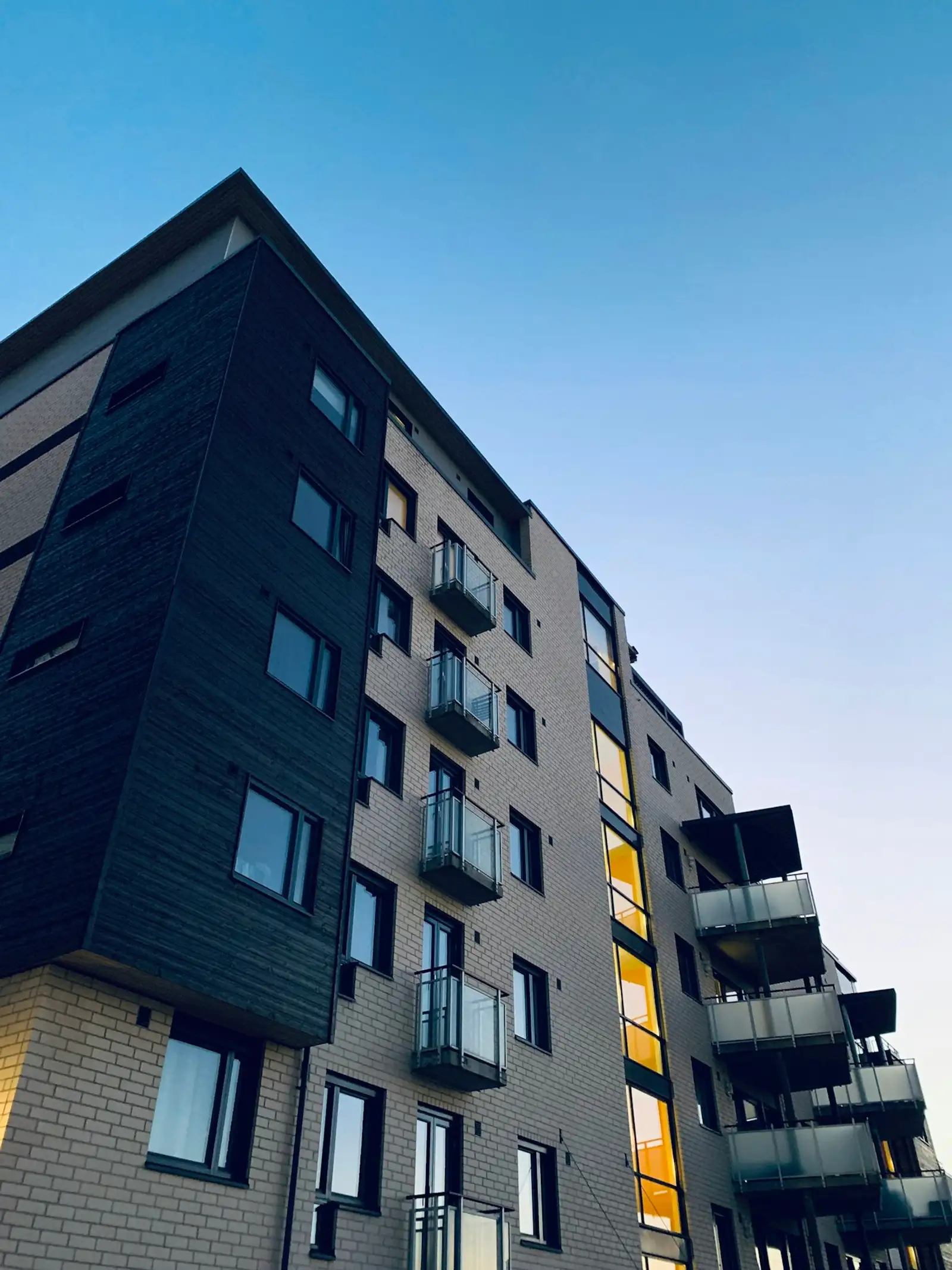
Block of Units Insurance
Owning a block of units (also known as a block of flats or multi-unit building) comes with unique responsibilities. By getting the right Block of Units Insurance, you can protect your asset and keep your tenants happy.
100+
Properties
$50M+
Protected
Zero
Call Centres
Recognition

Understanding The Product
What is Block of
Units Insurance?
Block of Units Insurance (sometimes called block of flats insurance or multi-unit building insurance) is a specialised policy designed for owners of multi-unit residential buildings, such as apartment complexes or townhouses, where the entire property is under single ownership.
Unlike Strata Insurance, which covers buildings with multiple owners under a strata title, Block of Units Insurance is for properties where one entity owns all the units.
If your property has multiple owners, you'll need Strata Insurance instead.
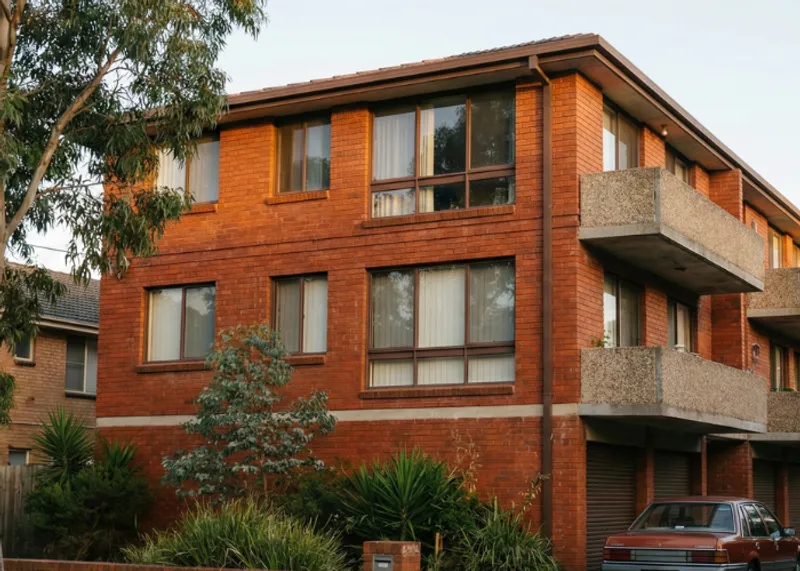
The Team Behind Your Cover
Why Tank Insurance
Brady Henderson leads our property placement team, specialising in blocks of units, landlord insurance, and non-strata residential properties. He handles these placements multiple times a week - not as a sideline, but as a core focus.
"I love working with block-of-units owners because the big direct insurers - NRMA, GIO, Budget Direct - are pulling out of this space. When I'm able to find them not just a solution but a competitive premium with solid cover, that's genuinely satisfying. These aren't easy wins, which is exactly why we focus on them."
— Brady Henderson, Property Insurance Specialist
Marel Pencev, Director, has built deep relationships across the property industry - including some of Australia's largest buyers' agencies, real estate agencies, property management firms, and mortgage brokers. These referral partners send their clients to us specifically because they've seen us solve problems others couldn't.

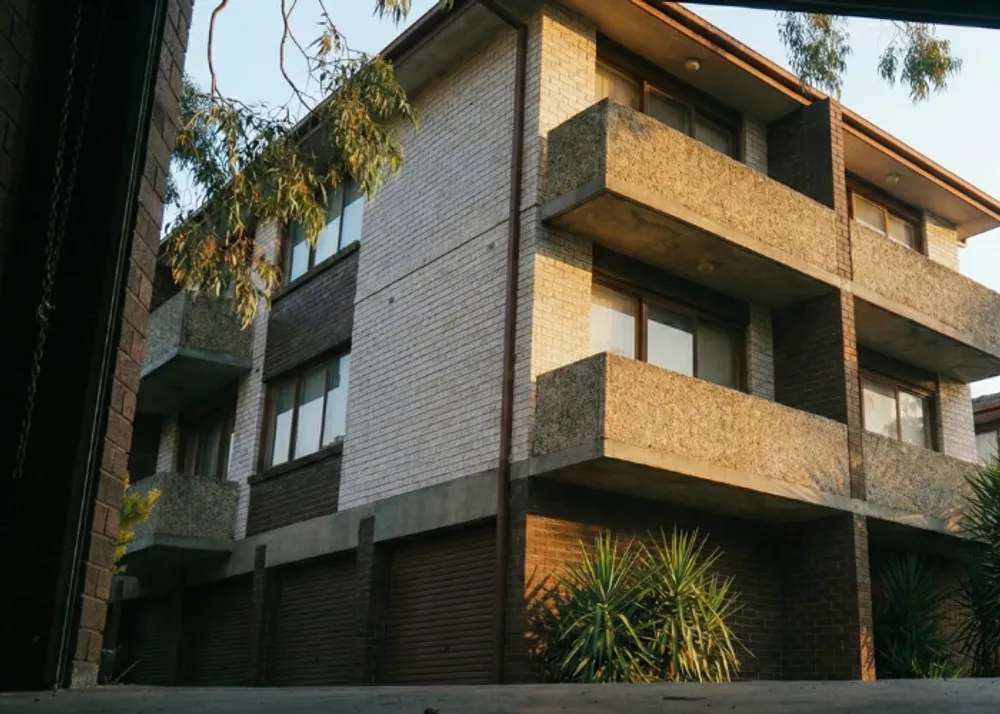
Why We Specialise in This
Over the past 12 months, we've seen a sharp increase in referrals from buyers' agents and property managers whose clients were getting declined by online insurers. Buildings that don't fit the "cookie-cutter" mold - older construction, higher sums insured, bushfire zones, unusual title structures - were being turned away with no explanation and no alternative.
We stepped in because we could actually help. We work with four buyers' agencies and a handful of property managers who now send us these placements regularly. It's become a core part of what we do - typically placing several block-of-units policies every week.
This isn't a pivot for us. We've been working in commercial property and landlord insurance for years, so blocks of units are a natural extension of expertise we already had.
Honestly? The market pushed us here.
The Difference
What Actually Makes the Difference?
Let's be direct: most insurance brokers have access to the same markets we do. The difference is in how we use that access.

Underwriters are more likely to quote when the submission is complete, accurate, and tells the right story. We've learned what each insurer needs to see.
When mainstream insurers decline, we have relationships with specialist underwriters who handle bushfire risk, flood exposure, heritage buildings, and high sums insured. We don't just send one quote request and wait - we work the phones.
Many of our clients need cover before settlement. We understand that timeline pressure and prioritise accordingly.
PROVEN RESULTS
Recent Block of Units Insurance Placements
We handle these placements every week. These aren't just case studies; they're real examples of how we navigate the Australian insurance market to find solutions for complex, high-value, or hard-to-place apartment blocks.
NRMA vs Tank Insurance for Block of Units
Are you currently insured with NRMA but worried about coverage limits or property classification? Many multi-unit owners find that direct insurers cap building sums insured at $2M, leaving larger assets underinsured.
Read the Comparison Guide →Why specialist owners switch:
- ✓ Access to $3M, $4M and higher building sums
- ✓ Correct classification for multi-unit titles
- ✓ Dedicated claims advocacy, not a call centre
Protecting Your Investment
Why You Need Block of Units Insurance
Owning a block of units means you're responsible for the entire property, from the building structure to shared spaces including hallways, stairwells or gardens. Here's why Block of Units Insurance is a must:
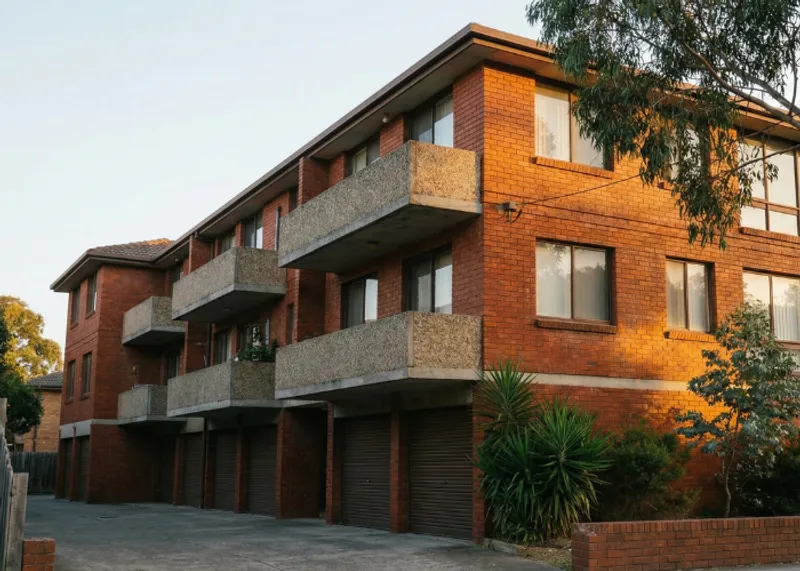
01
Asset Protection
Your property is a valuable asset. This policy covers repair or rebuilding costs if your building is damaged by events such as fires, storms, or vandalism.
02
Liability Coverage
If a tenant or visitor is injured on your property due to a maintenance issue (e.g., a slippery staircase), you face legal claims. Liability coverage manages these risks.
03
Tenant Retention
Keeping your property in good condition with insurance-backed repairs ensures safety and satisfaction, reducing vacancy rates and turnover.
04
Legal Compliance
In some states, specific insurances like Public Liability are critical to complying with strata regulations and protecting your business license.
Coverage Breakdown
What Does Block of Units Insurance Include?
A comprehensive Block of Units Insurance policy typically includes coverage for the building and property structure, public liability for common areas, loss of rent, and optional extras like machinery breakdown. You can click on the sections below to expand and see the detailed breakdown of what is covered under each category.
Building Coverage
This protects the physical structure of your property, including walls, roofs and fixed fixtures such as air-conditioning units or solar panels. It covers damages from insured events (e.g., fire, storms or earthquakes).
Contents in Common Areas
Covers items in shared spaces, like furniture in a lobby or equipment in a communal laundry. Learn more about contents cover.
Loss of Rent
If your units become uninhabitable due to an insured event (e.g., fire), this coverage compensates for lost rental income during repairs.
Removal of Debris
After an insured event, this covers the cost of clearing debris, which can be significant. Some policies include this automatically, while others require it to be added to your building sum insured.
Public Liability
Covers legal and compensation costs if someone is injured or their property is damaged due to an issue on your premises, such as a fall in a common area.
Optional Extras
Depending on your property, you might consider adding coverage for flood damage, machinery breakdown (e.g., lifts) or legal expenses.
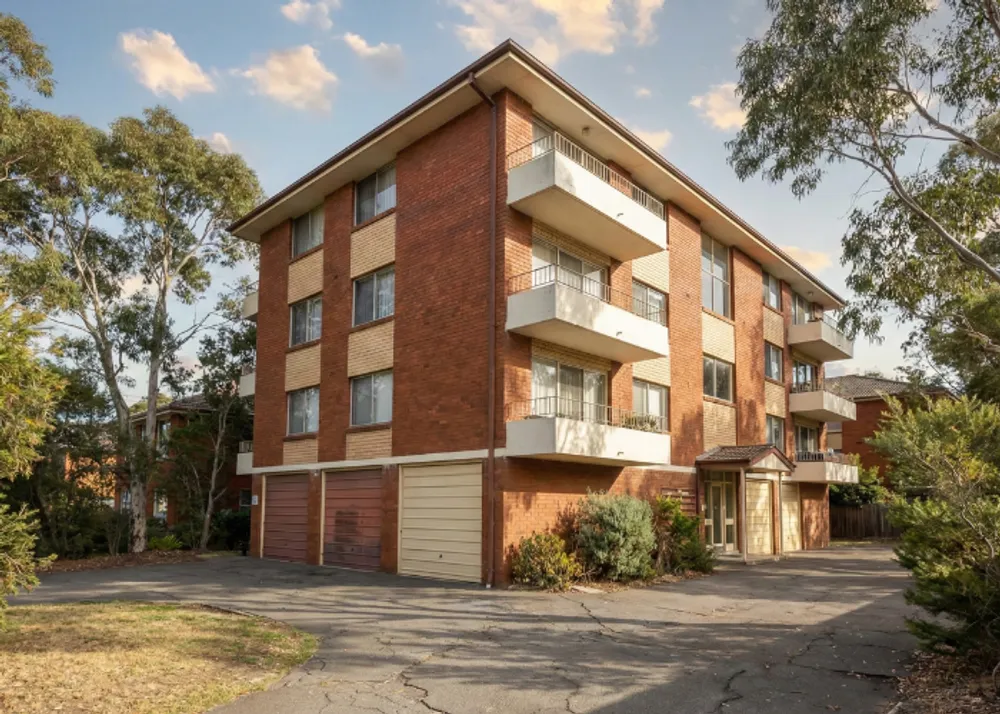
Comparison
How is Block of Units Insurance Different to Strata Insurance?
Block of Units Insurance is for single ownership, where one entity owns the entire building and needs one policy covering the structure, common areas, and liability. Strata Insurance is for multiple owners under a shared strata title, where the owners corporation insures the building and each owner insures their individual unit separately.
Block of Units Insurance
Single Ownership
You own the entire title. One policy covers the structure, common areas, and liability.
Strata Insurance
Multiple Owners
Shared ownership via a strata title. The corporation insures the structure; you insure your unit.
What To Look For
What's Important to Consider for Block of Units Insurance?
Here are the things to keep in mind when selecting your policy:
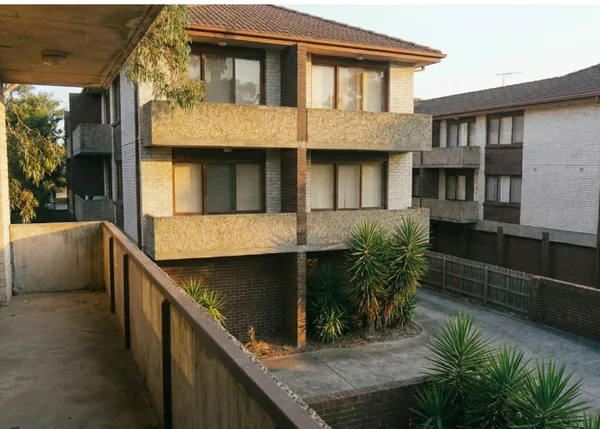
01
Accurate Sum Insured
Work with us to calculate the full replacement cost of your building, including unique features such as lifts. Underinsurance could leave you out of pocket after a claim.
02
Policy Exclusions
Check what's not covered, such as wear and tear or unoccupancy clauses, which could affect coverage if units are vacant for long periods.
03
Insurer Reliability
Choose insurers with a strong track record. Reach out to our team for assistance. We work with a panel of Australian-approved insurers to find reliable, competitive options that fit your needs.
04
Claims Support
We'll help you manage your claims, liaising with insurers to ensure a smooth process and fair outcome.
05
Compliance with Regulations
Ensure your policy complies with local laws, such as mandatory Public Liability Coverage.
Getting Started
How to Get Block of Units Insurance
Ready to protect your block of units? Here is the roadmap:
01
Contact Tank Insurance
Reach out to our team via phone, email or online form.
02
Share Your Details
Provide information about your property size, location and features so we can assess your needs.
03
Receive Quotes
We compare options from our panel of insurers to find you the most competitive cover.
04
Choose Your Policy
We'll explain each option to you, helping you select the coverage that best fits your budget.
05
Stay Protected
With your policy in place, we provide ongoing support, from renewals to claims.
01
Contact Tank Insurance
Reach out to our team via phone, email or online form.
02
Share Your Details
Provide information about your property size, location and features so we can assess your needs.
03
Receive Quotes
We compare options from our panel of insurers to find you the most competitive cover.
04
Choose Your Policy
We'll explain each option to you, helping you select the coverage that best fits your budget.
05
Stay Protected
With your policy in place, we provide ongoing support, from renewals to claims.
Support
Frequently Asked Questions About Block of Units Insurance
The 80/20 Rule: Some insurers may consider the building "occupied" if a certain percentage (e.g., 50%+) of units are tenanted.
Renovation Risks: If units are vacant due to renovation, this alters the risk profile and requires a "Works in Progress" notation or a separate Construction policy.
Important: Always notify us if occupancy levels drop significantly. Failure to disclose this change in risk could prejudice a future claim.
– Malicious Acts: A tenant smashing walls or doors.
– Rent Default: Loss of income if a tenant stops paying.
To be covered, it is generally recommended to arrange a policy that specifically includes Loss of Rent and Malicious Damage, or arrange separate Landlord Insurance policies for the individual units.
Tank Tip: We have access to specialised markets that bundle this together in one policy. For example, we work with an insurer that includes cover such as $70,000 contents as standard, simplifying the need for separate landlord policies.
Liability Exposure: The biggest risk is Public Liability. If a paying guest slips and falls in the stairwell, a standard home and contents policy will likely decline the claim. A specialised policy ensures this commercial-style liability is covered.
Wear and Tear: Be aware that even specialised policies generally exclude "wear and tear" caused by high turnover, but they will cover malicious damage caused by guests.
High-Risk Tenants: The type of tenant matters. A florist presents a lower risk than a takeaway shop using deep fryers (high fire load).
Fire Ratings: Commercial tenants may trigger different fire safety compliance requirements for the whole building.
Expert Insight: Insurers assess "occupancy ratios" differently. For example, if a building has 200sqm of retail downstairs and 200sqm of residential upstairs, one insurer might accept it as a 50/50 split. However, another might decline it based on tenant count (e.g., two residential tenants vs. one commercial tenant), viewing it as too heavily weighted toward residential risks for their specific commercial appetite. We help navigate these complex underwriting criteria.